Federico 'Piki' Lopez is Management Man of 2020: Capitalism has 'left too many behind'
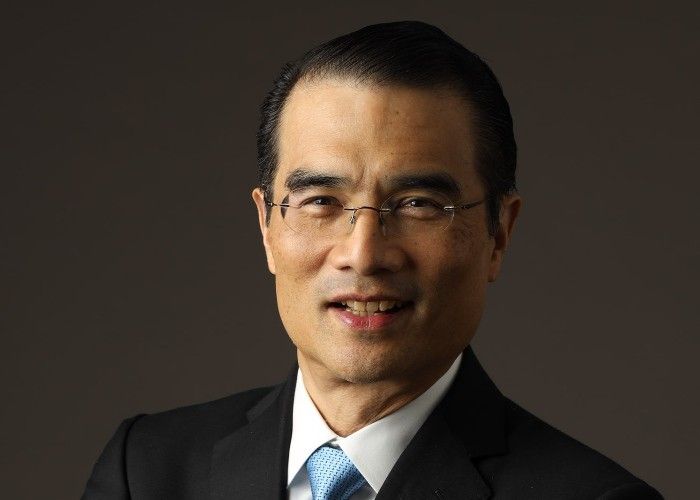
Federico "Piki" Lopez, CEO of First Philippine Holdings Corp., delivered this acceptance speech on November 23, 2020 as he was named Management Man of the Year 2020 by the Management Association of the Philippines.
---
Good afternoon, friends and colleagues in the Management Association of the Philippines (MAP). Allow me first to thank the Board of Governors led by President Francis Lim, as well as the members of Management Man of the Year Search and Judging committees for this recognition. Iam deeply humbled by the honor and trust you've given me with this award. I also extend my appreciation to the MAP team for making today’s first ever virtual awarding ceremony possible.
It’s significant that you’re giving me this award exactly 20 years after MAP conferred the same on my father, Oscar Lopez. No one has influenced me and what FPH is today more than him: his values, discipline, love for nature, zest for learning, his passion for social justice and his zeal for health and wellness. He’s a man of few words and rarely ever displays his approval (only his disapproval, and on that we’d get an earful) but he led us powerfully through his simplicity and his example. I’m doubly honored today because he and my Mom are here remotely to share this moment with me.
Let me share with you that the day after the news of your MMY award, my wife Monina, my son Robert, and | were still in disbelief, refusing to celebrate given it could have been a mistake or a “Steve Harvey Miss Universe” moment which might still be retracted. You'll find this odd but despite the warmth I’ve always experienced from fellow businessmen and the business organizations I belong to, I’ve always felt like an outsider or outlier in the world of Philippine business. Part of this likely stems from a lingering regret I’ve harbored that I never finished my Harvard MBA.
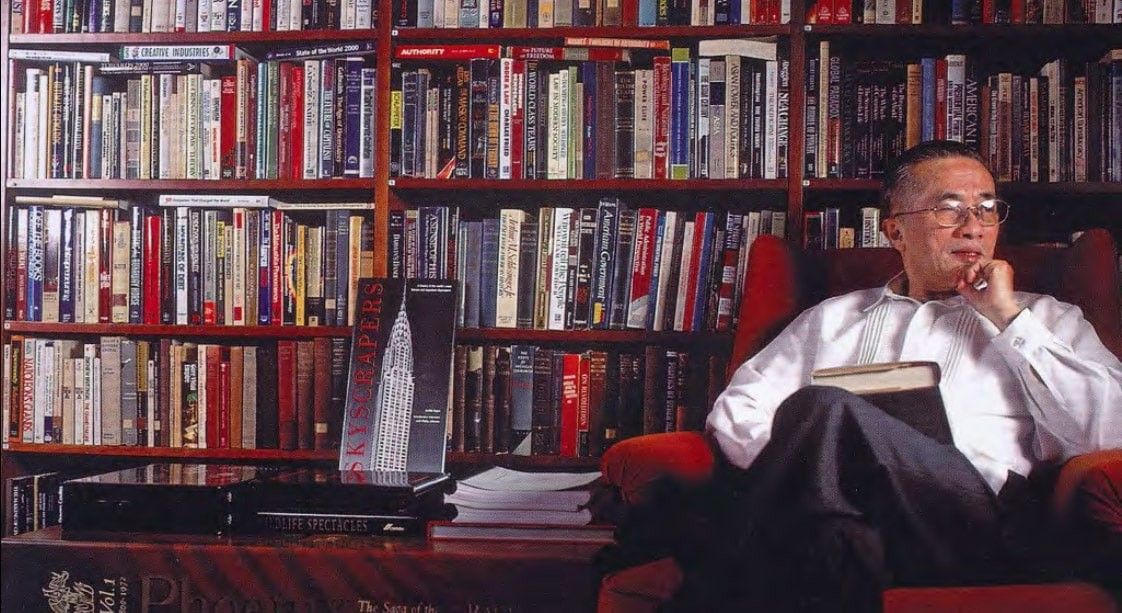
After I prematurely left campus in 1988 and joined my father in the task of rebuilding a near-bankrupt FPH, I thought I’d return to complete my studies after 3-4 years in the business world. I never did. This was likely because the situations I encountered at work convinced me that immersion in the world of real-life business was better for my development than interrupting it with another year of school. I never resolved whether I’d done the right thing and spent the last 33 years without the three letters “MBA” embossed on my CV and wondering whether I’d just squandered an opportunity not available to many. After today, thanks to MAP, the three letters “MMY” more than makes up for that and resolves this unfinished goal in my mind once and for all.
To be honest, although I read a lot and always relished the process of learning new things both in breadth and in depth, formal schooling in my youth never worked well for me. While I was never the unruly kid at the back of the class, my Zen-like calm during dull class lectures belied a mind that was distracted and already racing in many directions toward future life plans and adventures. Of course, all that showed up in unexceptional grades and academic struggles. A diagnosis then might have tagged me with a learning disability; the more enlightened today might instead have correctly identified this as a learning difference.
Whatever it was, the world I always felt so at home with was the world of water. I grew up a competitive swimmer and my dearth of academic honors was way compensated for by the profusion of competitive swimming medals and records broken. Water was always my element which later translated to a love for the sea. I ruefully admit though that in my earlier days as a scuba diver, I was also an avid spear fisherman and we'd justify this by claiming that we'd spear only what we'd eat.
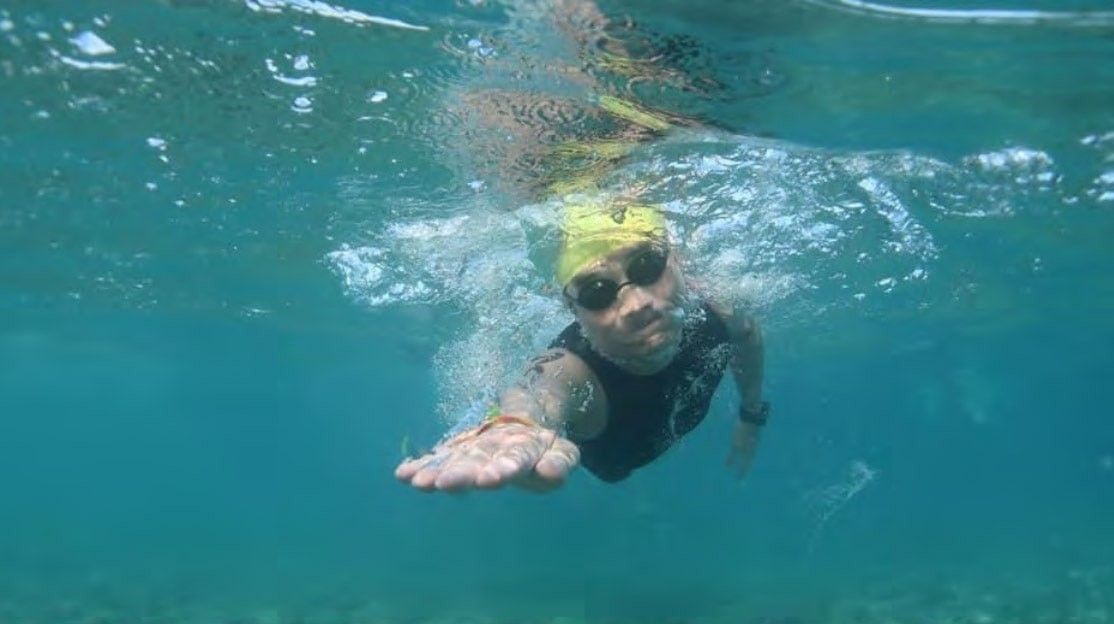
Then one day while spearfishing off the Verde Island Passage in Batangas, known as the “Center of the Center of Marine Biodiversity in the World”, | was approached at close range by a solitary 14-foot Great Hammerhead Shark whose curiosity was roused by my spearing activity. Fortunately, I wasn’t on this shark’s menu and had no bloodied fish to defend against this gigantic predator so he casually departed after deciding we had nothing exciting to offer. But at the sight of something this magnificent, this powerful, and this beautiful, my steel-shaft speargun didn’t only feel like a toothpick pointing at an armored tank but also that it didn’t belong there. I retired the speargun forever after that dive and exchanged it for an underwater camera instead.
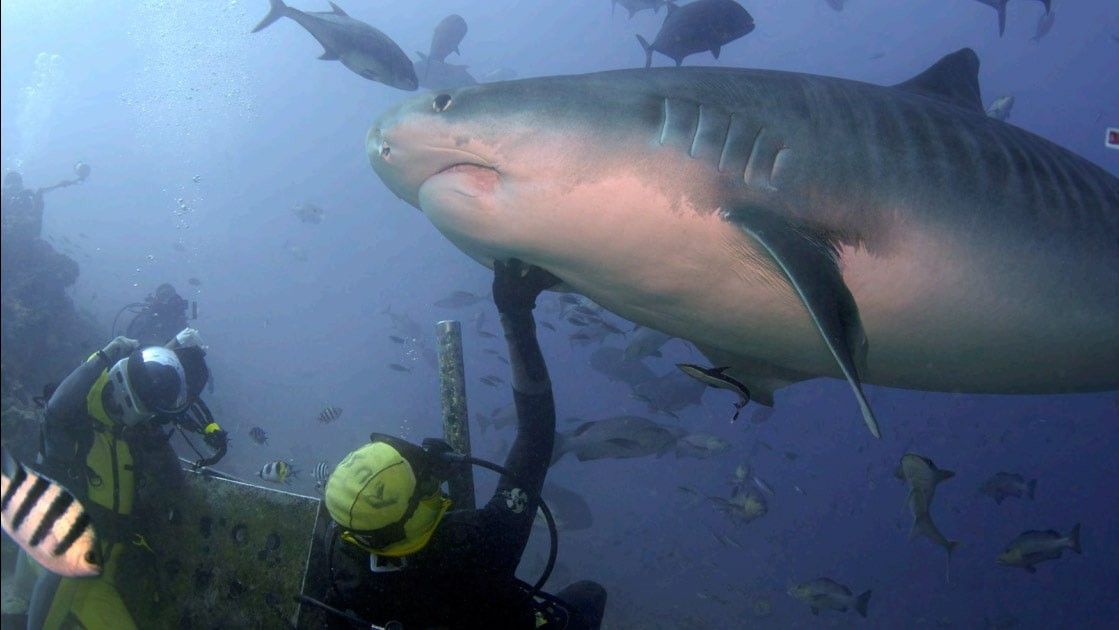
My ensuing years with an underwater camera brought me even closer to the sea I had grown up loving and ultimately brought me face to face with a similar-sized Tiger shark in Fiji. There were initially only two of us divers underwater when this monster-sized shark began circling and his very presence warded off all the other Bull sharks, Gray Reef sharks, Nurse sharks, Whitetip, and Blacktip sharks that had been with us the previous four days. That commanding aura defined exactly what an apex predator was. But what I found in that cageless encounter with a shark, infamously branded among the three most responsible for attacks on humans, was something completely different from what I had expected. He was never menacing or terrifying, but more cautious, gentle, and even playful. As he directly approached me for the first time, I could feel his nose glide gently just a foot or so above my head, sort of playing with the bubbles rising from my regulator. Instinctively, I gently lifted my gloved fingers to touch his underbelly as he passed.
At that moment, decades of fear inspired by the movie “Jaws” simply vanished from my mind and my perspective of sharks changed forever. I wrote an article about that encounter which became a magazine cover a few months later. Of course, it helped that my cousin Ernie happened to be its publisher at the time. I never had shark’s fin soup ever again.
A few years later I had a similar encounter, also in the Verde Island Passage Batangas, with a startled Octopus that scurried beneatha rock, warily watching me. As we sized each other up from a distance, I stayed with it for the next 20 minutes, edging closer as time lapsed.
Finally, as I calmly placed my hand out a few inches from where he was, out came a tentacle gently touching my hand in what looked like an effort to connect, saying, I think I can trust you.
The thousands of hours I’ve spent in the underwater world over the last 33 years were priceless. I sometimes wonder whether the majesty and beauty of what I’ve experienced will still be there for my son, and his own children someday, to see and feel just as I have, as even just a 1.5 °C warmer world will wipe out 70% of all coral reefs; and in a 2°C warmer world they'll all but vanish and go extinct. I’m having a hard time getting my mind around the scale of what humanity is losing, and the speed at which it’s happening.
Persistently immersing myself in new worlds was the magic that broadened my perspectives exponentially. But these life-changing insights only unfold themselves for you if you approach those new worlds with respect, empathy, a learning mind, and most of all with an openness to being vulnerable.
Beyond the underwater world, I’ve taken this same pattern of thinking with me as I mountain biked anonymously, and sometimes alone, into off-grid barangays and sitios in the mountains right outside the city. In these communities there are no roads or bridges as we know them. When the rains come, the rivers swell and isolate barangays from one another for hours, or even days at a time.
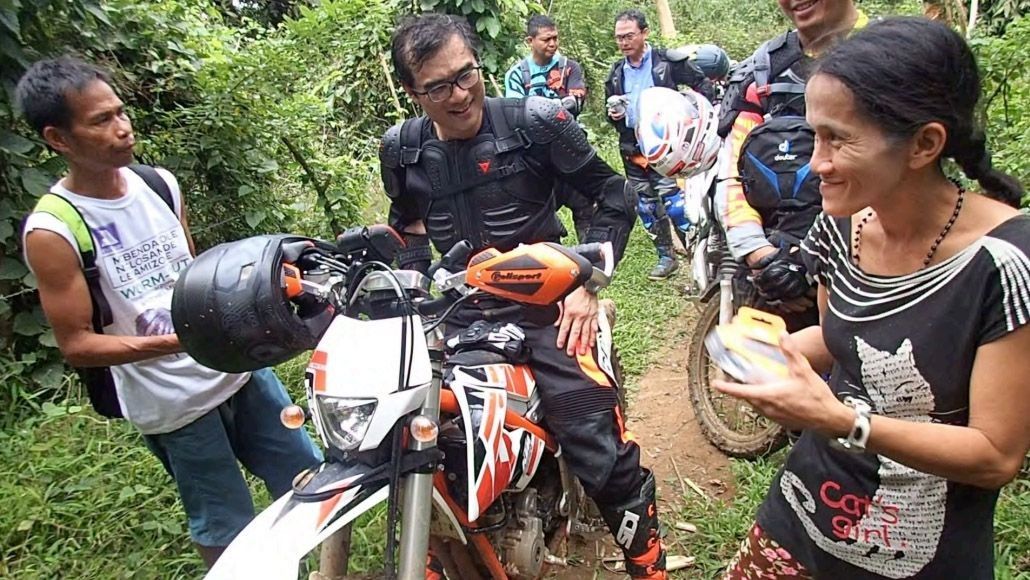
Currents are strong enough to move huge boulders that alter the landscape and routes along the way. I’d bump into troops of fully armed PNP special forces on patrol, fully decked with jungle camo and grenade launchers, with bandoliers of high-powered ammo slung around their chests. Idle talk around town was they were looking for escaped prisoners. Not sure why all the high-powered hardware though. Once, I encountered the lifeless body of a man wrapped in banana tree leaves hastily being carried down the trails from the mountains with nothing more than a bamboo pole. This after being killed in a subsistence mining altercation with his partner.
Life is raw, tenuous, fleeting, and fragile just hours from our doorsteps in Metro Manila. Yet in sharp contrast, the warmth by which I was welcomed into many homes there brought me countless conversations that taught me one very important detail of life under these conditions. And that is, that life thrives amidst poverty and harsh environments because the elements oblige people to build a strong sense of community and caring for one another. Life may be hard, but not necessarily unhappy because of these unseen bonds. I met a Dumagat woman, I'd even call her a true lady, who selflessly chose to raise the five children of a neighbor whose wife died during childbirth. This so he could continue to work in the fields. Helping without counting the cost came naturally to many people I came across. Kindness, gentleness, gratefulness and reciprocity for simple things was everywhere. It changed my traditional economist’s view of poverty, and gave me a glimpse of the richness of life beyond GDP that’s not always measured. More importantly, it speaks of our folly of being trapped in a single narrative. To instead see beyond just black or white, beyond just good or evil, rich or poor, happy or unhappy, and to experience the world through the eyes of others that help us see the millions of shades and colors truly out there. I value those experiences tremendously, as today, we badly need senses that help us respect diversity and differences so we can more deeply understand the web of complex and dynamic systems that we are all a part of. I hope my own learning here never stops.
These last thirty-three years in the business world, I’ve been blessed with either an active role or a front-row seat to many of our group’s notable and defining moments. Among them:
- The birth of the Philippine natural gas industry with Malampaya, its impending sunset, and of course the eventual birth of a new one involving LNG.
- The privatization and deregulation of the country’s power industry following the passage of EPIRA.
- The acquisition and transformation of world geothermal leader Energy Development Corporation.
- The near-death experience of the Lopez group in 1999-2009 when, because of massive debts and regulatory problems, our stock price plummeted to P0.08 per share in 2002 from a high of P15.55 in 1993.
- Then subsequently, the turnaround and success of our North Luzon Expressway toll road project in 2005.
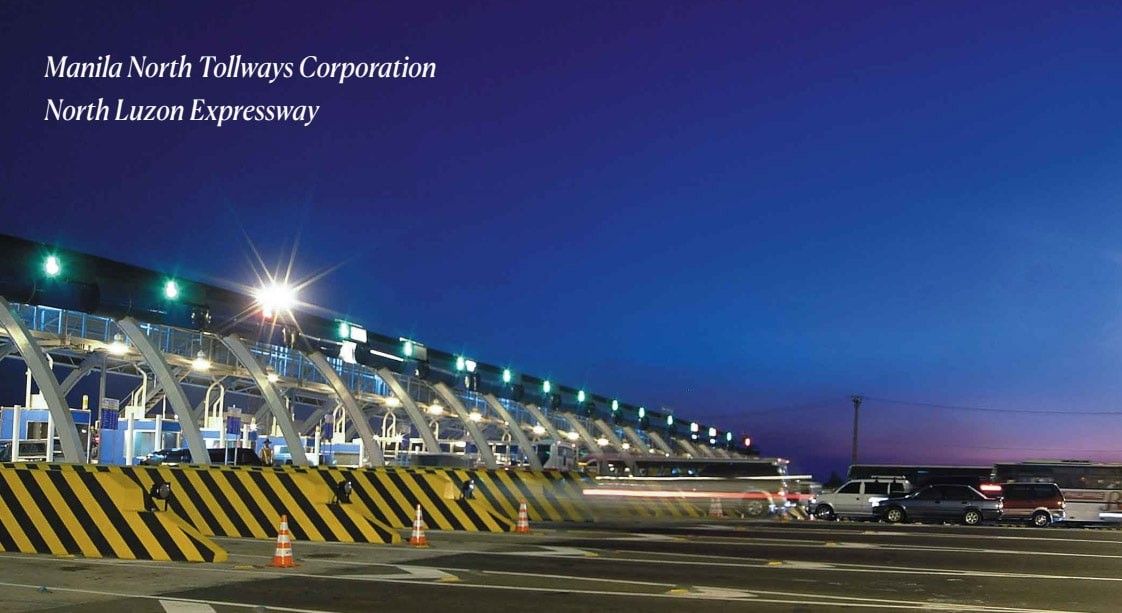
- And, our group’s resuscitation following the sale of MNTC in August 2008 and the sale of Meralco in 2009.e | was already at the helm during the devastation wrought by Typhoon Yolanda, and our defining response to this and other subsequent natural disasters.
- e This led us to firming up our group’s definitive “no-to-coal” declaration in 2016 which was not easy to explain to shareholders and analysts who wondered whether it made sense to just shut the door, walk away from a profit opportunity, or compete in the power industry with one hand tied behind your back. Despite the doubters, let me say we never wavered and never once regretted the decision, most especially today.
- e And of course, most gratifying was building up FPH’s Recurring net income at a Compounded Annual Growth Rate of 29% over the past 10-year period.
If you include our family’s recent ABS-CBN challenges, simply from my thirty-three year timeframe you can see why we’re drawn to the romantic narrative of the mythical Phoenix, which is also the title of our two-volume, 200-year history of seven generations of Lopezes. I have always been moved and inspired by the colorful history of my family and the achievements of my predecessors. It definitely has and always will have a place in my heart. However, the notion of heroically rebuilding again and again from the ashes of a scorched bird is far from my idea of a narrative that should guide our destiny; I don’t believe future generations of Lopezes should romanticize and be trapped by it. I always remind myself that “the fault dear Brutus, may not always be in our stars, but in ourselves...” Learn, reflect with deep honesty, absorb the lessons wholeheartedly, then move on and proceed, always wiser.
However, the real lesson for me over the last thirty-three years has been that we could not have accomplished the things we did without professionalizing the management of our organizations and empowering these professionals to think like owners. I’m too aware of my own weaknesses, and the limitations of relying on the family gene pool alone to think it could have been done otherwise. I envied their work backgrounds, their experiences with the best global firms, or even just the exceptional discipline, tenacity, and professional creativity they brought to their work. It isn’t simply about attracting and compensating them well. More importantly, it’s about creating, nurturing, and often being very protective of a work environment that enables everyone to become their best selves and contribute toward a collective purpose larger than any of us individually. We sometimes describe our work at the top as that of gardeners tending, nurturing, and protecting everyone’s growth. Sounds passive and docile, but this often requires actively keeping egos and feelings of entitlement in check so that unbridgeable silos don’t take root, and relationships as well as communications are always strong. A lot of this underpins successful and agile teams that grow, solve problems, and create considerable value for all stakeholders together. Like with any garden, forest, or ecosystem, that kind of work requires eternal vigilance and never stops.
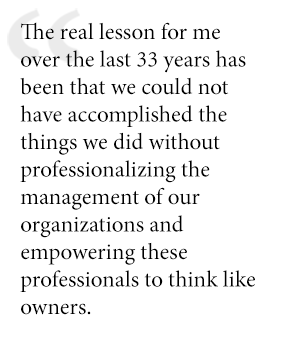 But the year 2020 has been a bizarre year for all of us. These last few months made what was unthinkable, tangible and real. We now live in a world that’s not merely complicated but tightly interrelated and complex. To use the words of the mathematician/meteorologist Edward Lorenz in the 1960s who asks, “Does the flap of a butterfly’s wings in Brazil set off a tornado in Texas?”. The COVID-19 pandemic has driven this into our psyches mercilessly. It also exposed us to the raw power of exponential progression. A phrase used by Hemingway’s character Mike Campbell in his novel "The Sun Also Rises," when asked how he went bankrupt replied: “two ways, gradually, then suddenly”.
But the year 2020 has been a bizarre year for all of us. These last few months made what was unthinkable, tangible and real. We now live in a world that’s not merely complicated but tightly interrelated and complex. To use the words of the mathematician/meteorologist Edward Lorenz in the 1960s who asks, “Does the flap of a butterfly’s wings in Brazil set off a tornado in Texas?”. The COVID-19 pandemic has driven this into our psyches mercilessly. It also exposed us to the raw power of exponential progression. A phrase used by Hemingway’s character Mike Campbell in his novel "The Sun Also Rises," when asked how he went bankrupt replied: “two ways, gradually, then suddenly”.
“Gradually, then suddenly” now applies to so many aspects of our lives: how we go to sleep, how the gradual onset of heart disease leads to a heart attack, how technology disrupts, how bankruptcies unfold, how pandemics spread, and pretty soon how climate change will affect us all, where we're fast approaching the “suddenly” phase if we aren’t in it already. How will FPH and the Lopez Group move forward in this unsettling new world?
I’ve felt for some years now that the unprecedented times we’re living in have been begging for a new narrative and a new paradigm for how we live, work, do business, and even how we measure success and progress.
Today our way of life has set us on a trajectory of 3-4°C of warming by 2100. This current path will clearly be catastrophic and turn Earth into an unlivable and socially disrupted planet way before then and surely within the lifetimes of our children. Whenever I see the UN IPCC timelines needed to keep global average temperature rise to 1.5°C, when plotted on a chart it reveals a curve still just within reach, but, with each year of inaction, gets precipitously steeper and tougher to meet. These next ten years (the decade of the 2020’s) will determine whether we are able to halt the climate crisis in time, or watch it run away from us irreversibly.
We are not off to a good start. This year we saw record high temperatures in both the Antarctic and the Arctic, which both hold not only huge stores of ice but also tremendous amounts of methane in their permafrost layers. (For perspective: Greenland ice sheet in the Arctic has 7.3m worth of sea level rise in them; Antarctica, the world’s ice locker, has 58m worth of potential sea level rise built in.) Methane, as you may know, is 80 times more potent than CO2 asa greenhouse gas over a 20-year period. If the big melt of permafrost results in these stores of methane being vented into the atmosphere, we would have unleashed a powerful feedback loop that’s equivalent to the emissions of another China today. The difference will be that no amount of climate negotiations can hold that back anymore. (If you don’t mind a sleepless and terrifying night, look up the National Geographic cover story for September 2019 which articulates in full color what’s happening up there in the Arctic.)
The UN IPCC last October 2018 was clamoring for us to cut CO2 emissions in half by 2030, and take it all the way down to Net Zero by 2050 if we want to limit global warming to 1.5°C by 2100. That’s roughly a 6-7% annual reduction in carbon emissions till 2050. Just for perspective, this year travel and transport reductions and the economic slowdown from COVID-19 is expected to reduce carbon emissions by 7-8%. In other words, we need a COVID-scale crisis every year till 2050 just to keep the planet livable!
Today at just 1°C of warming, we can see the geologic-scale changes happening to our planet’s environment everywhere. I’m sure you remember the Australian and California wildfires, and the drought that reduced the mighty Victoria Falls and Zambezi River to a mere trickle last year.
Then just earlier this month, millions of Filipinos were sequentially pummeled and thrashed by Rolly, the world’s most powerful typhoon this year, and Ulysses, one that surpassed Typhoon Ondoy’s wrath in 2009. The destructive power of these formerly 100-year events has no doubt been intensified by the accelerating climate crisis, and they now hit us with greater frequency and regularity. The news images that swept our screens these last few weeks painfully called up two thoughts that are always simmering at the top of my mind. The first was what I heard Al Gore say in 2016 here in Manila where he warned that, “all our infrastructure was built for a world that’s now changed." The second was a quote from Thomas Friedman of the New York Times who alerts us that, "with climate change there will be no such thing as herd immunity, just a relentless pounding of the herd."
How long can even the strongest, most resilient communities withstand this relentless and repeated pounding year after year if they can lose everything they have at least 20 times a year? Is this the kind of world that closes or widens the gaps between rich and poor?
Do we sit around and wait for prayerful resilience of the vulnerable to turn into anger, then solidify into hate?
Our way of life and patterns of production and mass consumption now use 1.75 Earths annually. That’s 75% more than the Earth can replenish each year. US lifestyles account for 5 Earths yearly, which many others on the planet aspire to attain. All the main life support systems of our planet, from our oceans, forests, air, soils, biodiversity and freshwater resources are all in decline. Plastics can be found everywhere from the bottom of the Marianas trench to the top of the Himalayas. Our own Pasig River is the 8th most plastic polluting river in the world. All other rivers on that top 10 list are thousands of kilometers long. Our Pasig river measures only 27 km.
Capitalism has brought tremendous and amazing progress, creativity, and innovation. But as it’s currently practiced, it has also left too many behind. Even as we breach much of our planet’s safe environmental limits, billions of people still do not have decent access to energy, clean drinking water, toilets, food, healthcare, education, housing, income and work, political voice, social and gender equity, or even peace and justice. Our economics 101 classes taught us the rainbow-shaped Simon Kuznets curve (done in the 1930’s) which infers that inequality rises but eventually falls as the economy grows. There was even an environmental version of that curve by economists Grossman and Kreuger in the 1990’s which promised the same relationship with environmental degradation and that eventually, pollution all got cleaned up as countries got richer.
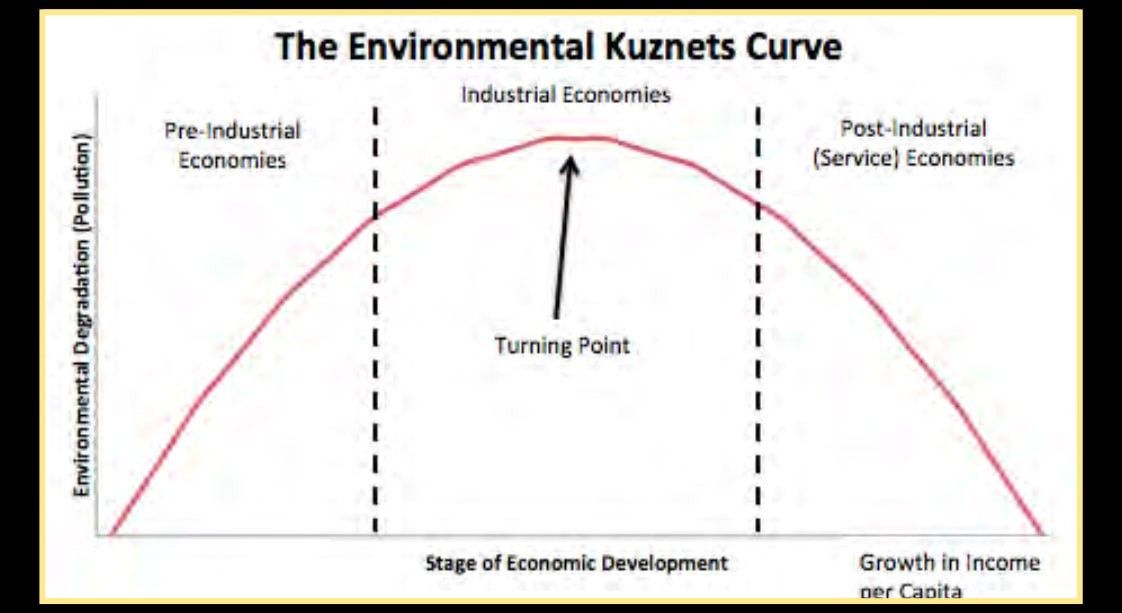
Theories like these shaped our worldviews and policies over many decades but we now know they have scant basis for being true.
Economics in my time was taught with the inference that GDP can and should grow forever. The environment was belittlingly treated as just an "externality" that had no limits. We were trained like pilots who were taught to fly but never how to land. So, ironically, despite finally earning academic honors in my college economics courses at the University of Pennsylvania, I feel now like I have to unlearn a lot of it.
The populism that’s sweeping the world is a symptom of the growing disenchantment with business, politics, and life as usual. In today’s world, it’s a disenchantment that’s moving at exponential warp speed through the power of social media, weaponized or otherwise. The natural, social, and political forces being unleashed in the coming decade will likely make it the most challenging and most disruptive business has ever seen. The COVID-19 pandemic is just a mere "firedrill." for what’s coming and demonstrates the scale at which things need to change. We are living in a time that calls for great paradigm shifts, and businesses that seek to thrive in this era must be able to reimagine and redesign themselves for this new world.
In this kind of a world, corporate sustainability that seeks to simply "tick the box" or do less harm is no longer good enough. Sustaining our trajectory today will result in disasters that are not only greater in scale, but also more unjust towards those without the capacity to cope with the devastating changes that are already here, and continue to escalate.
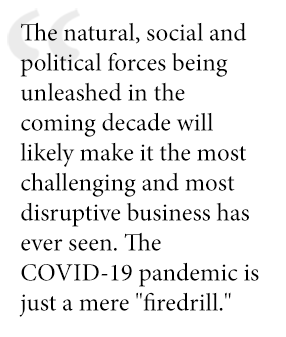 Businesses need to align themselves, their resources, and their capabilities towards a mission that seeks to elevate everything they touch—their customers, employees, suppliers, contractors, the environment, communities, and, of course, their investors. CSR or philanthropy may ease our consciences but the sad fact is they may never scale up enough to heal our hurting world in time. There is an urgency for all of us to go beyond incremental sustainability and transform into regenerative forces that align our profit engines with the need for a better, more just world and a safer planet. Collectively, we have the creativity and innovative energy needed to solve the world’s greatest problems. Unlocking these will be the foundation to some of the greatest business opportunities in the coming century.
Businesses need to align themselves, their resources, and their capabilities towards a mission that seeks to elevate everything they touch—their customers, employees, suppliers, contractors, the environment, communities, and, of course, their investors. CSR or philanthropy may ease our consciences but the sad fact is they may never scale up enough to heal our hurting world in time. There is an urgency for all of us to go beyond incremental sustainability and transform into regenerative forces that align our profit engines with the need for a better, more just world and a safer planet. Collectively, we have the creativity and innovative energy needed to solve the world’s greatest problems. Unlocking these will be the foundation to some of the greatest business opportunities in the coming century.
Moving closer to home, this year we crystallized our Mission at FPH and our group of companies and that is: "To forge collaborative pathways for a decarbonized and regenerative future." It’s a deliberately high bar and we're nothing short of humbled by it. Let me share a few points about this short phrase. First, the mission was deliberated on and hotly debated internally for months and finally solidified our role in the transition to a decarbonized energy system.
But it goes beyond energy and anticipates dealing with the many adaptive challenges needed to redesign how we live, work, and do business in a changed world.
Secondly, we didn’t feel it was appropriate anymore to use the word "sustainable" in a world that’s so badly in need of healing and renewal. So we took on the challenge of using the word "regenerative." Instead, with all the responsibility it carries. We are not a full-on regenerative company today; no one is yet. But we chose it deliberately to signal to our people that they have a license to adopt this new mindset as our inherent way of doing business and that it’s OK for them to "bring their values to work" every day. Being regenerative doesn’t scale if it only comes from the top; it has to permeate the organization and how it does business day to day.
And thirdly, the word we used very deliberately was "collaborative" as we believe we cannot do this alone. We (that includes our PR and CSR professionals) all have to stop seeing this as a competitive beauty contest. I keep stressing to our people that if we find ourselves ahead and alone at the finish line, we will have failed in our mission. This is a massive undertaking and we know we cannot possibly succeed if we go the journey alone.
Honestly, these thoughts make me feel small and humbled. Because everything we’ve been doing so far just feels like a tiny first step on a dangerous thousand mile journey. We’re all imperfect beings, with imperfect abilities, in an imperfect, maybe broken world, but it should never mean losing the courage to make things better. As the songwriter and poet Leonard Cohen wrote: "Ring the bells that still can ring, Forget your perfect offering. There is a crack in everything, That’s how the light gets in."
Let me close my remarks by saying that paradigm shifts of this scale and magnitude can never be easy, especially in the stage before there’s any momentum. But I take comfort in the transformation of a common caterpillar into something so functionally different and radically beautiful as a butterfly. Every caterpillar harbors dormant imaginal cells; each waiting with the potential to transform into something else. As cells morph, the immune system of the caterpillar attacks them as if they’re outsiders or enemies. But as the transformation persists and the number of imaginal cells multiply beyond a critical tipping point, the body stops fighting them, changes over and begins the process of nourishing those same cells instead.
An unformed, embryonic wing may start out with just 50 cells but grow to as much as 50,000 when fully formed. The anguished and labored metamorphosis of a butterfly that can take to the sky in flight only begins the moment it’s willing to give up being a caterpillar.
Once again let me thank the Management Association of the Philippines for honoring our journey with this award. It’s finally made sense of the times when we felt like the faint voice in the wilderness and our view of the world may not have been mainstream. Thankfully, the winds are changing profoundly now. But no matter where each of us is in this continuum of belief today, I feel with a mix of certainty and hope that we will all be helping each other along this same road very soon. We look forward to building those collaborative pathways with as many kindred spirits as we can.




















